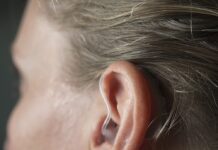
Chewing. Slurping. Sniffling. These everyday sounds can drive some of us crazy, and now we are one step closer to knowing why. Often misunderstood and misdiagnosed, misophonia is a soundprocessing disorder that many experience but don’t understand and don’t know what to do about.
About Misophonia -Misophonia (which translates roughly to hatred of sound) refers to strong reactions to specific sounds that can include anxiety, depression, difficulty concentrating, and obsessive-compulsive behavior. The offending sounds are ones that happen in everyday life, making avoidance difficult. Misophonics report anxiety, panic, and anger when exposed to trigger sounds. This compromises their ability to complete everyday tasks, be successful in the workplace, and engage in social interactions.
Causes -A 2017 study published in the journal Current Biology discovered that in misophonics, the part of the brain that joins our senses with our emotions — the anterior insular cortex — is overly active, and it’s connected differently to areas involved in remembering experiences, according to Dr. Sukhbinder Kumar, the lead researcher from the Institute of Neuroscience at Newcastle University. He tells The New York Times, “We think that misophonia may be heavily connected to recalling past memories, because people with misophonia have had very bad experiences.” Onset can occur in early childhood, with sensitivities becoming serious and affecting everyday coping usually between ages 8 and 14. If untreated, it can last a lifetime. We do not know how many are affected, as it has only recently been diagnosed as a condition.
Treatment- Researchers do not know why specific sounds trigger such a negative reaction; Sukhbinder hopes to identify the brain signature of the trigger sounds, which will help with finding treatment. For now, he hopes misophonics will find relief in knowing that what they experience is an actual disorder. Treatment has been most effective when based on a tinnitus-retraining therapy (TRT) model first introduced by Pawel J. Jastreboff, Ph.D., Sc.D., and Margaret M. Jastreboff, Ph.D., who coined the term misophonia in 2003. TRT, a combination of sound therapy and cognitive behavioral therapy, has proven effective in 83 percent of cases.
In TRT, pleasant environmental sounds or music are introduced into the patient’s ear canal. The patient learns to create positive associations with sound and practice intentional rethinking of trigger sounds. Use of earplugs or music-streaming earbuds to block out offending noises is not recommended. This exacerbates the problem by increasing sensitivity to sound. It’s More Than an Annoyance — It’s Misophonia.
Dr. Izzy & Staff are always available to answer questions about serious hearing care issues. Please call 732-818-3610 or visit gardenstatehearing.com.
Sources: https://www.nytimes.com/2017/02/03/health/sounds-people-hate.html. http://www.cell.com/current-biology/fulltext/S0960-9822(16)31530-5. Edelstein, M., Brang. D., Rouw, R. Ramachandran vs. Misophonia: Physiological Investigations and Case Descriptions. Front Hum Neurosci. 2013;7:296. Jastreboff, P.J., Jastreboff, M.M. Components of Decreased Sound Tolerance: Hyperacusis, Misophonia, Phonophobia. ITHS News Lett. 2001;2,5-7. Jastreboff, P.J., Jastreboff, M.M. Using TRT to Treat Hyperacusis, Misophonia and Phonophobia. ENT Audiol News. 2013;21:88-90. Jastreboff, P.J., Jastreboff, M.M. Treatments for Decreased Sound Tolerance (Hyperacusis and Misophonia). Semin Hear. 2014;35:105-120. Moller, A.R. Chapter 4: Misophonia, Phonophobia, and “Exploding Head” Syndrome. In A.R. Moller, B. Langguth, D. DeRidder, and T. Kleinjung (Eds.), Textbook of Tinnitus. 2001. New York, NY: Springer. Schroder, A., Vulink, N., Denys, D. Misophonia: Diagnostic Criteria for a New Psychiatric Disorder. PLoS One. 2013;1e54706. Wu, M.S., Lewin, A.B., Murphy, T.K., Storch, E.A. Misophonia: Incidence, Phenomenology, and Clinical Correlates in an Undergraduate Student Sample. J Clin Psychol. 2014;70:994-1007.






